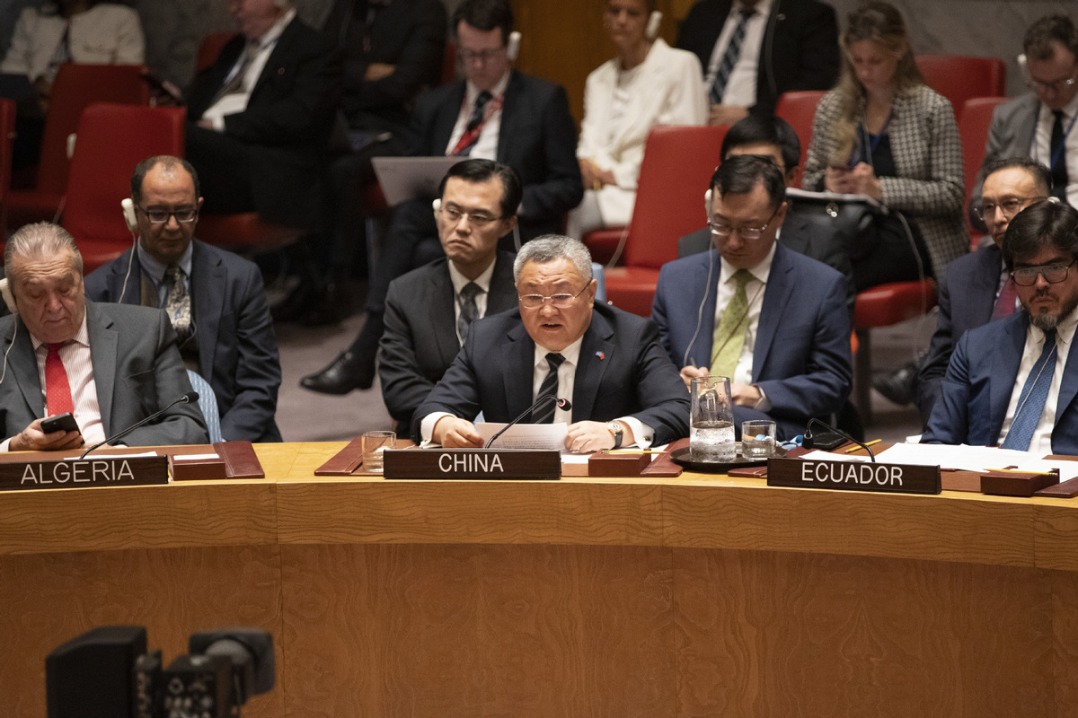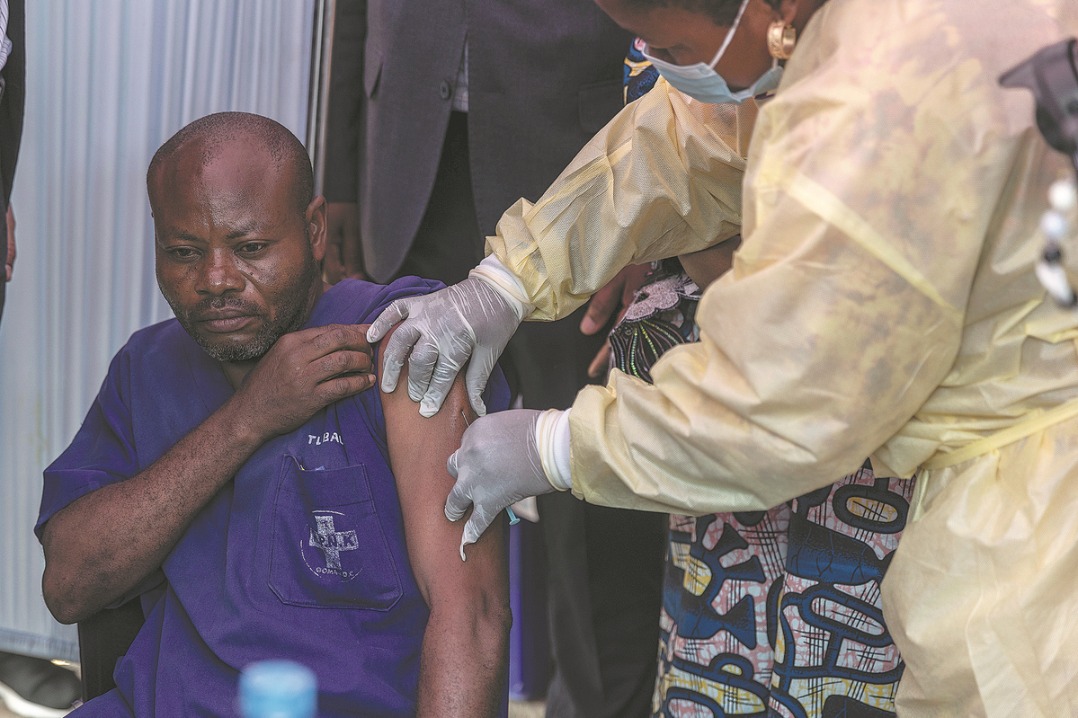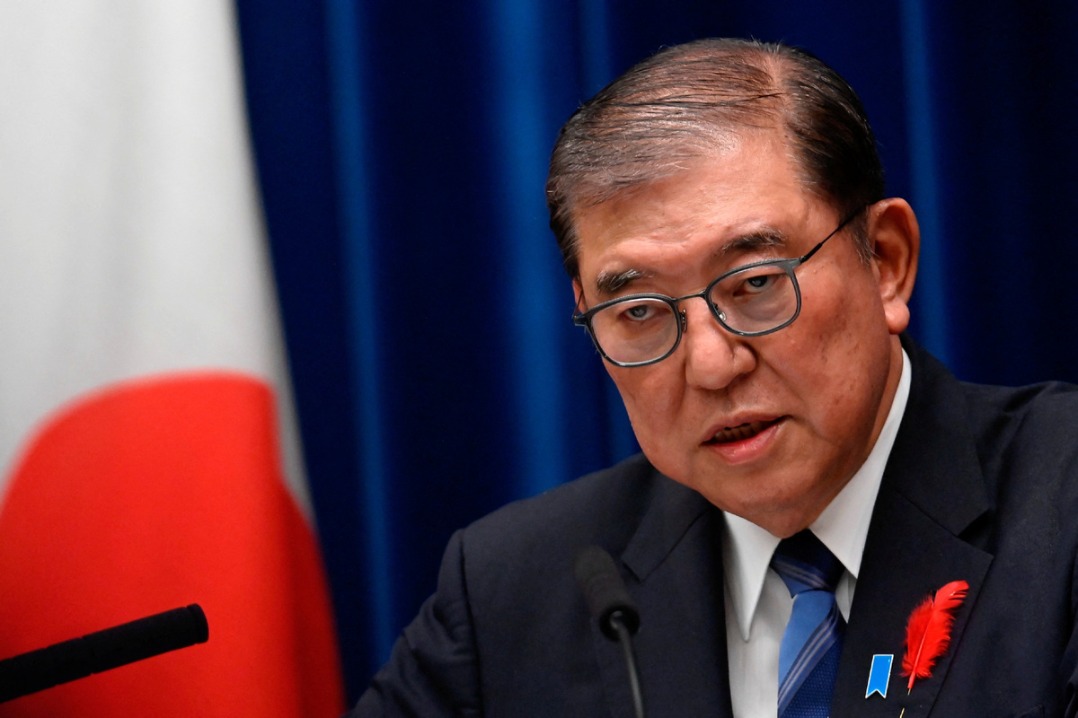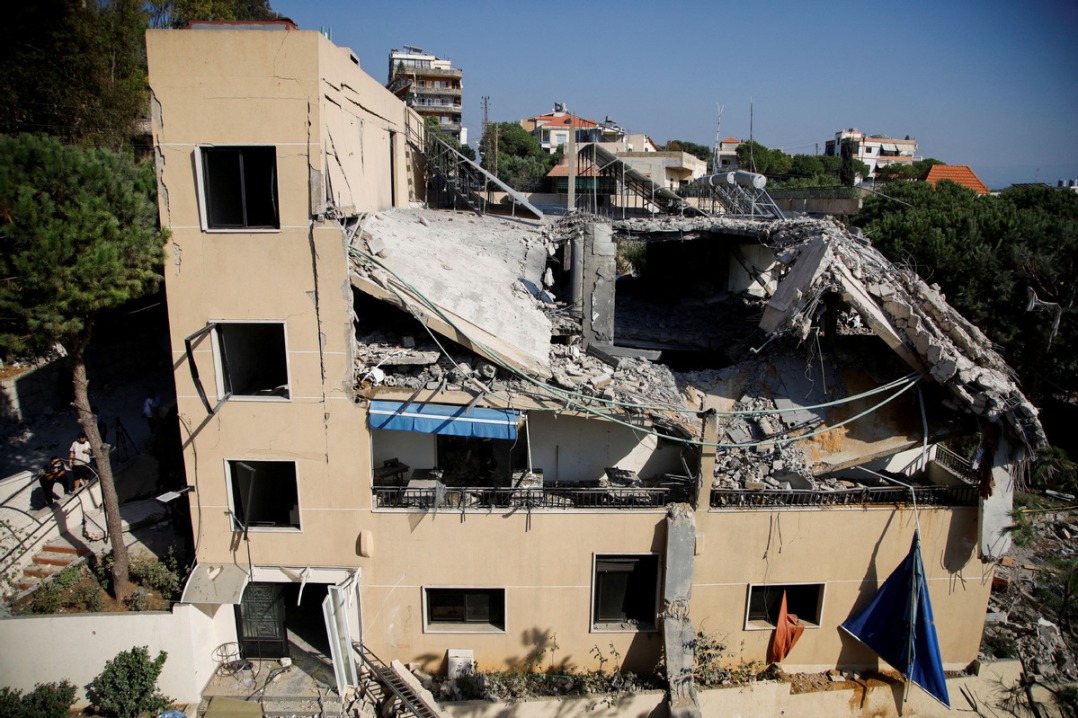US protests rage amid Netanyahu's address
Marchers call for stopping aid to Israel as negotiations on cease-fire near end

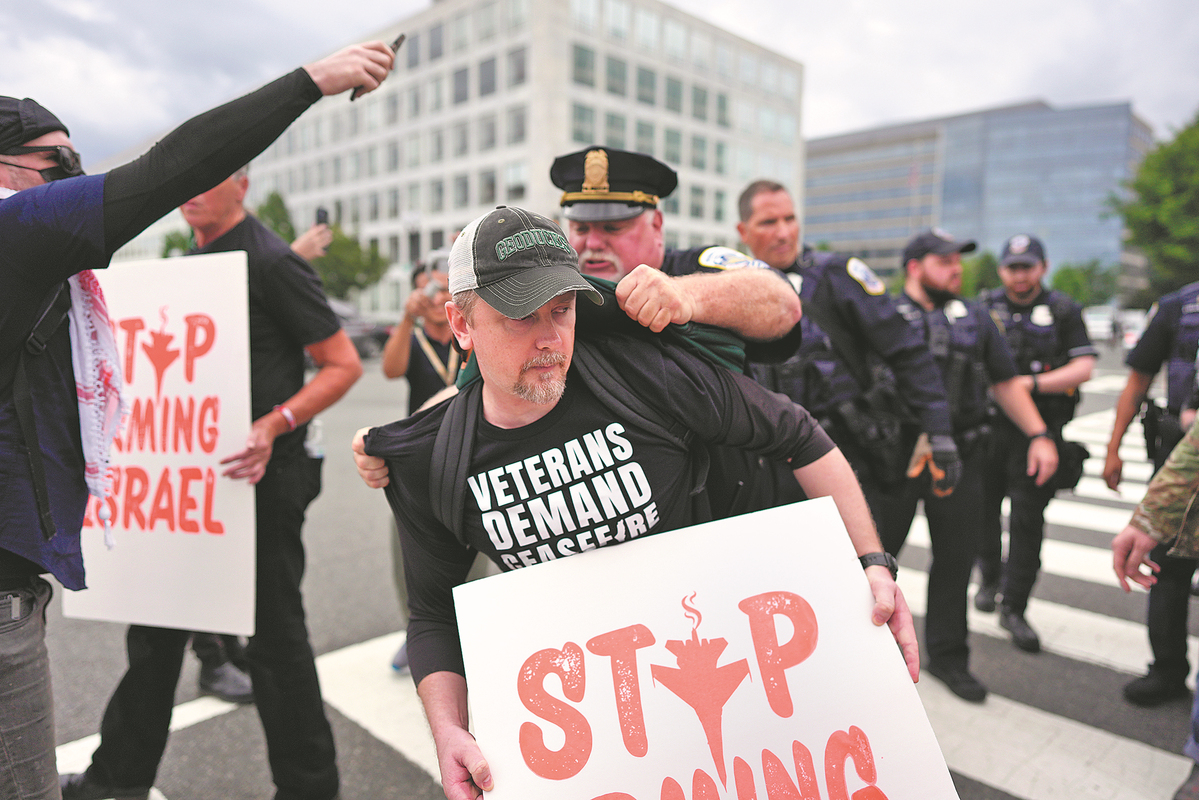
Pro-Palestine protests turned violent in Washington, DC, on Wednesday as Israeli Prime Minister Benjamin Netanyahu addressed the US Congress.
The protesters called for the United States to stop military aid to Israel. They hoisted Palestinian flags and burned US ones outside Washington's Union Station in demonstrations.
About 1 kilometer away, police used pepper spray on some of the thousands of protesters who gathered outside the US Capitol while Netanyahu spoke.
Before Netanyahu's speech, some protesters tried to block his route to the Capitol but were removed from the street by police. After being turned away by officers near the Capitol, protesters wound through the Capitol Hill neighborhood for several blocks before gathering in front of the nearby rail station.
Various videos posted on social media platform X showed police and protesters clashing, along with images of monuments covered in red paint and slogans in favor of Palestine and against Israel.
Netanyahu was scheduled to meet President Joe Biden and Vice-President Kamala Harris on Thursday and former president Donald Trump on Friday.
Shortly before Netanyahu started speaking, Capitol Police said protesters in a march tried crossing a blockade and did not retreat when asked.
"The crowd failed to obey our order to move back from our police line. We are deploying pepper spray toward anyone trying to break the law and cross that line," police said in a statement.
"We were no threat (to police)," said Sarah Bowles, a pharmacy technician from Delaware who attended the protest and assisted injured protesters. One of the protesting groups said police attacked demonstrators as they marched.
Nine people were arrested across Washington, including four on charges of assaulting a police officer outside Union Station.
Capitol Police said in a post on X that six people who disrupted Netanyahu's address were removed from the House gallery and arrested.
"Disrupting the Congress and demonstrating in the congressional buildings is against the law," police said.
Outside of Union Station, protesters shouted "Let them go!" at officers who formed a circle around several people who were arrested. One person grabbed at a police officer's riot shield and then raised his fists in a fighting stance.
'Wanted criminal'
Pro-Palestinian groups and university students have for months protested in the US against Israel's offensive in Gaza, where health authorities say nearly 40,000 Palestinians have been killed.
A stage at the protest site near the Capitol was decked out with banners, including one that declared the Israeli leader a "wanted war criminal" in reference to an arrest warrant sought by International Criminal Court prosecutors. Netanyahu denies war crime allegations.
Dozens of Democratic lawmakers skipped Netanyahu's speech to Congress in protest over the deaths and the humanitarian crisis in Gaza, where nearly all of its 2.3 million people have been displaced.
US Representative Rashida Tlaib, a Michigan Democrat, held up signs that said "war criminal "and "guilty of genocide" during Netanyahu's speech.
Meanwhile, negotiations on a cease-fire-for-hostages deal in the Gaza conflict appear to be in their closing stages and Biden and Netanyahu will discuss remaining gaps on Thursday, a senior US official said on Wednesday.
The official, briefing reporters ahead of their talks, said the remaining obstacles are bridgeable and there will be more meetings aimed at reaching a deal between Israel and Hamas over the next week.
Militants of Hamas stormed into southern Israel on Oct 7, killing 1,200 people and taking 250 captives, according to Israeli tallies. Hamas and other militants are still holding 120 hostages, and Israel believes around a third of them are dead.
Months of stop-start talks have failed to produce a deal to secure the release of some of the remaining hostages.
The senior US official said both Israel and Hamas still have some issues to resolve but that a deal is close in which a six-week ceasefire would take place in exchange for the release of women, elderly men and wounded hostages over a 42-day period.
Agencies contributed to this story.

















